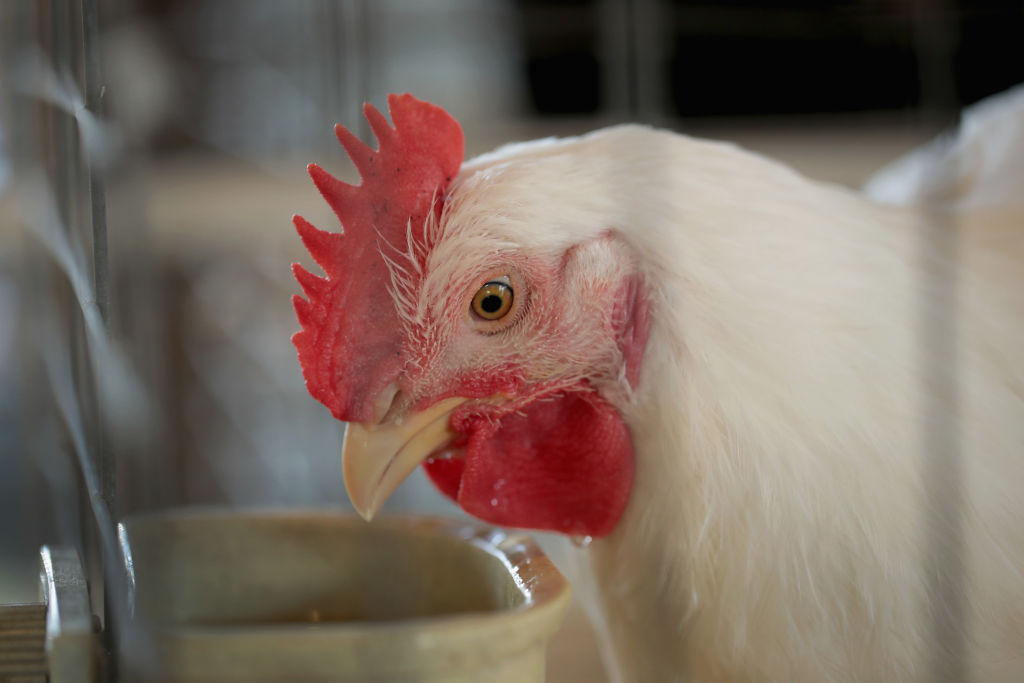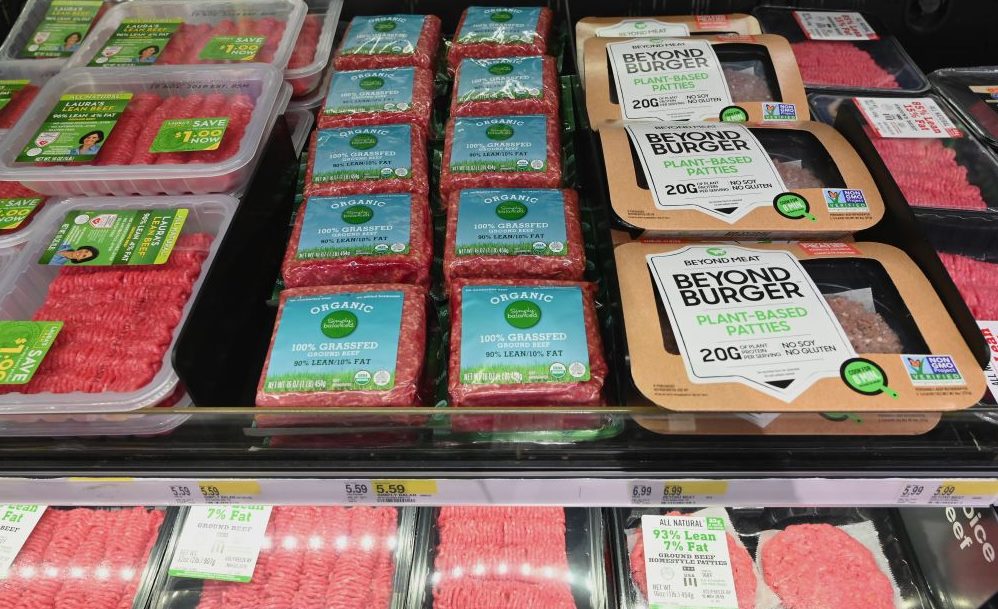Activists from the animal welfare group Direct Action Everywhere (DxE) last week released photographs taken on an Iowa pig farm. They claimed they had walked through an open door, photographed pigs suffering from hideous rectal prolapses and open sores, as well as what appears to be overcrowding. The photographs were taken last April, and the activists have claimed that they withheld the pictures to avoid the accusation that they had contaminated the living conditions and endangered the pigs. Ironically, they have received criticism both for endangering the pigs and for withholding evidence.The owner of the farm is Republican State Sen. Ken Rozenboom. In a statement to the Des Moines Register, Rozenboom granted that there had been ‘caretaker deficiencies’ and ‘careless practices’ but claimed that the pigs had had ample space and that the animals with rectal prolapses had been in a ‘hospital pen’. Moreover, Rozenboom claimed that a different farmer had been leasing the facility and that he had been replaced. All of this might be true. DxE have propagandistic as well as journalistic motivations and they might have been selective in their photography. Rozenboom is not just a politician and a farmer, though, but a politician who has used his status to promote laws which benefit farmers at the expense of animals. He is a supporter of ‘ag-gag laws’, which attempt to criminalize undercover filming at farms and slaughterhouses.‘Ag-gag laws’ were instituted and struck down in Idaho, Iowa and Utah, and are being challenged in Arkansas, Kansas and North Carolina. These laws were developed to protect farmers against campaigns such as that which Mercy for Animals carried out against Sparboe Farms in 2011. Their videos, which included footage of farm workers swinging a chicken through the air and attempting to stuff a hen into somebody’s pocket, led McDonald’s, Target and others to drop Sparboe a supplier.These laws could undeniably have stifled revelations that were in the public interest. An ARM investigation into Fair Oaks Farms, for example, captured footage of workers beating and kicking calves. Indiana, where the investigation took place, had considered ag-gag laws but happily rejected them.Such investigations have been in the public interest because they have protected human as well as animal health. An investigation of Westland/Hallmark Meat Co. revealed that ‘downer cows’, or cows who were unable to walk, were being slaughtered for their meat. This led to a gargantuan 143.4 million pounds of meat being recalled — the largest amount in American history.Let me declare an interest. I am a vegetarian, and would be happy if more and more people decided not to eat animals. That said, though, I think most people who disagree with my position would oppose the violence and neglect that investigations have exposed. (Some might not and there is really nothing I can say to convince them. Live your best lives, frigid souls, but stay away from kittens.)If you have a modicum of interest in animal welfare, you should be glad that people are exposing these abuses whatever their intentions. The alarming pro-soy bias of animal rights activists might make you more suspicious of their claims but if dreadful conditions are common enough that activists can stroll onto the farm of one of ag-gag laws’ leading proponents and find them, then you have to ask yourself what is more important: their ideas, which have no real impact, or the conditions themselves, the impact of which has been vividly documented. Where manipulation and deceit have taken place, as I grant that they can, there are libel laws which have been made especially for such circumstances.For Republicans to support ag-gag laws is baldly hypocritical. Pro-Trump conservatives rightly had no qualms about using evidence acquired from the anarchistic Julian Assange, and have celebrated the undercover antics of James O’Keefe of Project Veritas. Evidently, then, they understand that the significance of information is not dependent on the character of its delivery people, and that whistleblowing is an important feature of societies that hold their institutions to account. Republicans also care about the Constitution, and while my own knowledge of constitutional law is too slim to allow me to make a firm judgment, it is worth reporting that last month a Kansas court ag-gag law as it contradicted the First Amendment and:‘…plainly targets negative views about animal facilities and therefore discriminates based on viewpoint.’Conservatives should also be wary of affirming their popular reputation as stalwart defenders of big business against the little guy. I know that the thought of farming conjures up bucolic images of families laboring on their fields but this is often a misconception. Smithfield Foods, a popular target of activists, is a Chinese-owned industrial giant that rakes in 15 billion dollars a year.Ag-gag laws are known to be unpopular. An ASPCA poll found that 64 percent of Americans opposed criminalizing undercover investigations on industrial farms, with 50 percent of them opposing it strongly. Opposition prevailed across age, sex and political demographics.For reasons of principle and pragmatism, then, conservatives should demonstrate that they believe in animal welfare and in public awareness and oppose ag-gag laws. I no more expect many of them to join me in vegetarianism than I expect my grandmother to join me in watching Mixed Martial Arts but I hope we can at least agree that animals deserve to be treated well in life and that consumers deserve to know how animals are treated.
All of this might be true. DxE have propagandistic as well as journalistic motivations and they might have been selective in their photography. Rozenboom is not just a politician and a farmer, though, but a politician who has used his status to promote laws which benefit farmers at the expense of animals. He is a supporter of ‘ag-gag laws’, which attempt to criminalize undercover filming at farms and slaughterhouses.‘Ag-gag laws’ were instituted and struck down in Idaho, Iowa and Utah, and are being challenged in Arkansas, Kansas and North Carolina. These laws were developed to protect farmers against campaigns such as that which Mercy for Animals carried out against Sparboe Farms in 2011. Their videos, which included footage of farm workers swinging a chicken through the air and attempting to stuff a hen into somebody’s pocket, led McDonald’s, Target and others to drop Sparboe a supplier.These laws could undeniably have stifled revelations that were in the public interest. An ARM investigation into Fair Oaks Farms, for example, captured footage of workers beating and kicking calves. Indiana, where the investigation took place, had considered ag-gag laws but happily rejected them.Such investigations have been in the public interest because they have protected human as well as animal health. An investigation of Westland/Hallmark Meat Co. revealed that ‘downer cows’, or cows who were unable to walk, were being slaughtered for their meat. This led to a gargantuan 143.4 million pounds of meat being recalled — the largest amount in American history.Let me declare an interest. I am a vegetarian, and would be happy if more and more people decided not to eat animals. That said, though, I think most people who disagree with my position would oppose the violence and neglect that investigations have exposed. (Some might not and there is really nothing I can say to convince them. Live your best lives, frigid souls, but stay away from kittens.)If you have a modicum of interest in animal welfare, you should be glad that people are exposing these abuses whatever their intentions. The alarming pro-soy bias of animal rights activists might make you more suspicious of their claims but if dreadful conditions are common enough that activists can stroll onto the farm of one of ag-gag laws’ leading proponents and find them, then you have to ask yourself what is more important: their ideas, which have no real impact, or the conditions themselves, the impact of which has been vividly documented. Where manipulation and deceit have taken place, as I grant that they can, there are libel laws which have been made especially for such circumstances.For Republicans to support ag-gag laws is baldly hypocritical. Pro-Trump conservatives rightly had no qualms about using evidence acquired from the anarchistic Julian Assange, and have celebrated the undercover antics of James O’Keefe of Project Veritas. Evidently, then, they understand that the significance of information is not dependent on the character of its delivery people, and that whistleblowing is an important feature of societies that hold their institutions to account. Republicans also care about the Constitution, and while my own knowledge of constitutional law is too slim to allow me to make a firm judgment, it is worth reporting that last month a Kansas court ag-gag law as it contradicted the First Amendment and:‘…plainly targets negative views about animal facilities and therefore discriminates based on viewpoint.’Conservatives should also be wary of affirming their popular reputation as stalwart defenders of big business against the little guy. I know that the thought of farming conjures up bucolic images of families laboring on their fields but this is often a misconception. Smithfield Foods, a popular target of activists, is a Chinese-owned industrial giant that rakes in 15 billion dollars a year.Ag-gag laws are known to be unpopular. An ASPCA poll found that 64 percent of Americans opposed criminalizing undercover investigations on industrial farms, with 50 percent of them opposing it strongly. Opposition prevailed across age, sex and political demographics.For reasons of principle and pragmatism, then, conservatives should demonstrate that they believe in animal welfare and in public awareness and oppose ag-gag laws. I no more expect many of them to join me in vegetarianism than I expect my grandmother to join me in watching Mixed Martial Arts but I hope we can at least agree that animals deserve to be treated well in life and that consumers deserve to know how animals are treated.
The conservative case for opposing ‘ag-gag’ laws
Animals deserve to be treated well in life and that consumers deserve to know how animals are treated

A chicken awaits judgment at the Iowa State Fair
Activists from the animal welfare group Direct Action Everywhere (DxE) last week released photographs taken on an Iowa pig farm. They claimed they had walked through an open door, photographed pigs suffering from hideous rectal prolapses and open sores, as well as what appears to be overcrowding. The photographs were taken last April, and the activists have claimed that they withheld the pictures to avoid the accusation that they had contaminated the living conditions and endangered the pigs. Ironically, they have received criticism both for endangering the pigs and for withholding evidence.The owner of the farm…
Comments
Share
Text
Text Size
Small
Medium
Large
Line Spacing
Small
Normal
Large
























